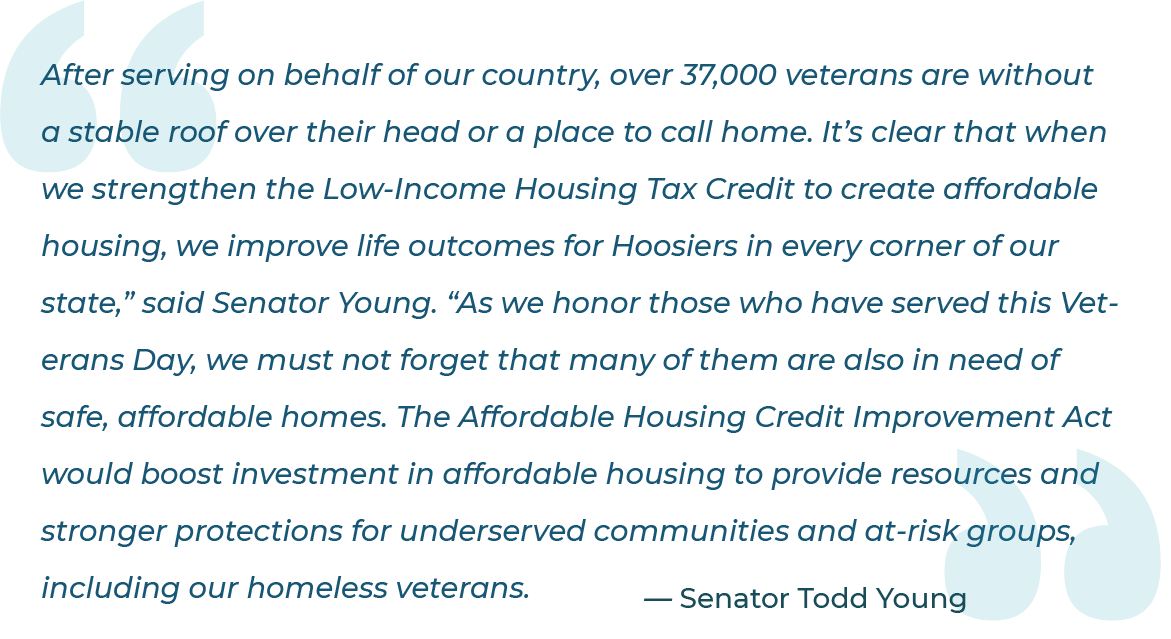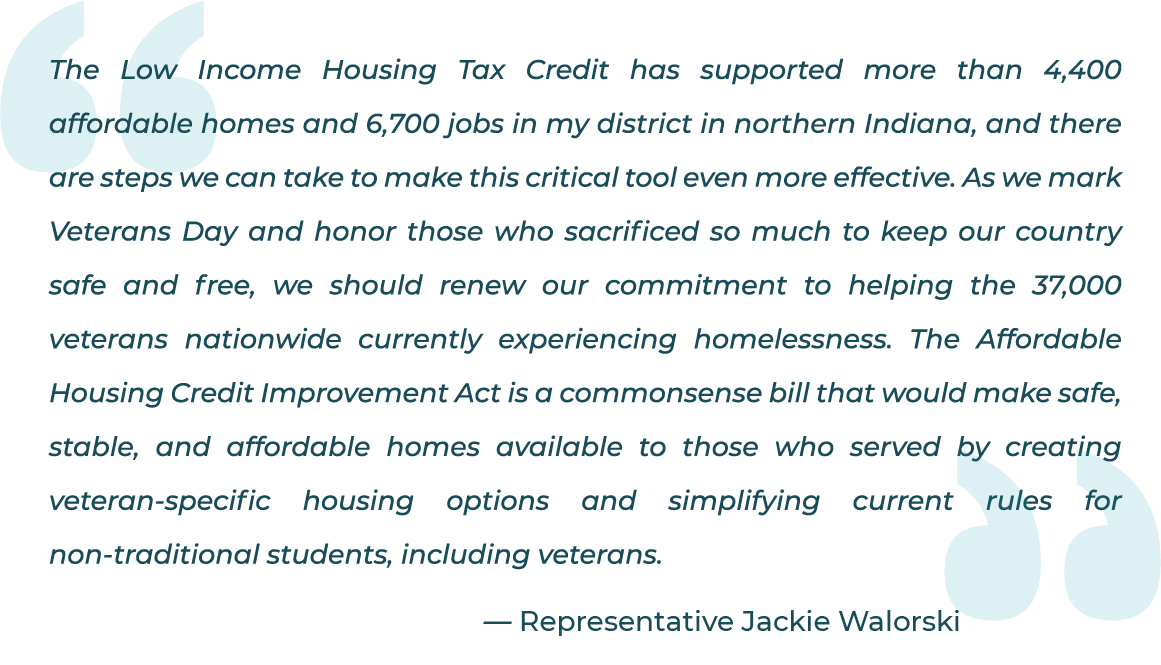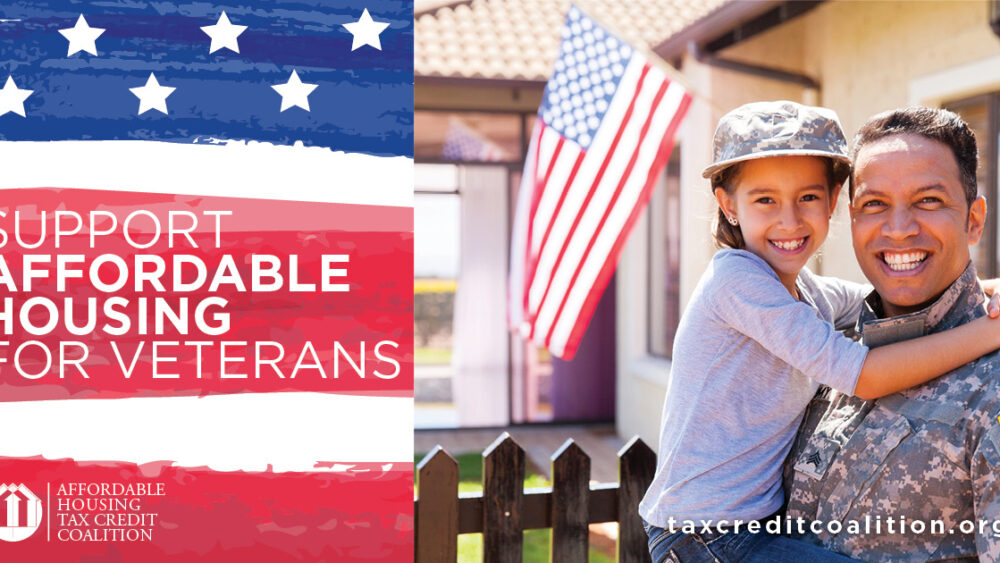Today with over 37,000 American veterans experiencing homelessness and more than 660,000 low-income veterans paying more than half of their income on rent, Veterans Day should drive a renewed effort to strengthen effective solutions like the Low-Income Housing Tax Credit (Housing Credit) to help address the vast and growing need for affordable homes for our nation’s heroes.
In honor of Veterans Day, the AHTCC has launched a new webpage highlighting the importance of the Housing Credit for low-income veterans, drawing from examples from our members who have demonstrated how innovation and partnership can allow us to provide them with safe, stable and affordable homes.
Since 1986, the Housing Credit has financed more than three million homes for low-income households, including veterans, senior citizens, individuals with disabilities, essential workers, and families with children. Through public-private partnerships, the Housing Credit offers a proven track record of financing safe, decent affordable homes in communities where they are needed most.
Several members of Congress, including Affordable Housing Credit Improvement Act (AHCIA) lead sponsors Senator Todd Young (R-IN), Congresswoman Suzan DelBene (D-WA) and Congresswoman Jackie Walorski (R-IN), shared videos and quotes on the importance of providing affordable homes for veterans using the Housing Credit.


The AHTCC is advocating for passage of the Affordable Housing Credit Improvement Act (AHCIA), a bill to strengthen the Low-Income Housing Tax Credit and create 610,000 additional affordable homes nationwide than would be possible under current law. Key provisions would ensure that housing designed specifically for veterans can be built across the country, including in rural areas where the development of affordable housing is often not feasible. The AHCIA would also better facilitate the development of properties serving extremely low-income or formerly homeless tenants.
Veteran housing properties developed with the Housing Credit have been recognized as award-winning, innovative facilities, many tailored to specific populations and either adjacent to or including vital support, rehabilitation, social and medical services. These properties are essential as veterans across the country remain at high risk for homelessness. It is estimated that more than 37,000 veterans nationwide are homeless, and among these 23,000 live in shelters while 14,500 live without shelter of any kind.



Comments are closed.